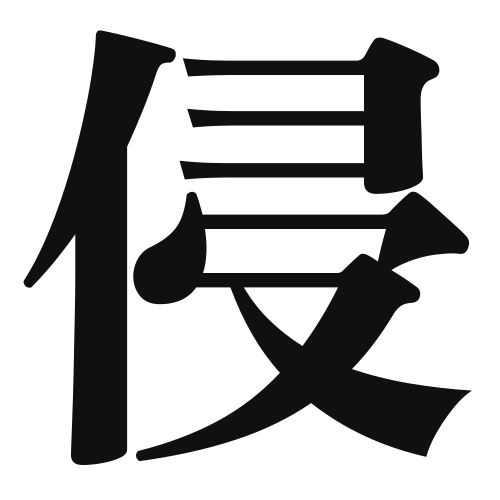1. Overview of Meaning
The kanji “侵” (shin) generally means “to invade” or “to infringe.” It conveys the idea of encroaching upon someone else’s territory or rights.
2. Formation and Radical
Formation of the Kanji: The kanji “侵” is a phonetic-ideographic character (形声文字). It combines the meaning of “to invade” with phonetic elements that suggest its pronunciation.
Radical: The radical for “侵” is “氵” (water), which is often associated with fluidity and movement, reflecting the idea of encroachment.
3. Examples of Usage
Common Words and Phrases: Some frequently used words that include “侵” are “侵略” (shinryaku – invasion) and “侵害” (shingai – infringement).
Example Sentences in Daily Conversation:
- 「彼の行動は私のプライバシーを侵しています。」(His actions are invading my privacy.)
- 「国境を侵略することは許されません。」(Invading the border is not allowed.)
4. Synonyms and Antonyms
Similar Kanji: A similar kanji is “侵入” (shinyuu – intrusion), which also implies entering without permission but often refers to physical entry.
Opposite Kanji: An antonym is “防御” (bougyo – defense), which means to protect or defend against invasion.
5. Cultural and Historical Background
Relation to Japanese Culture: The concept of “侵” is significant in Japanese history, particularly in the context of territorial disputes and military actions.
Proverbs and Idioms: One relevant proverb is “侵し難い” (okashigatai – hard to invade), which reflects the idea of strong defenses or resilience against encroachment.
